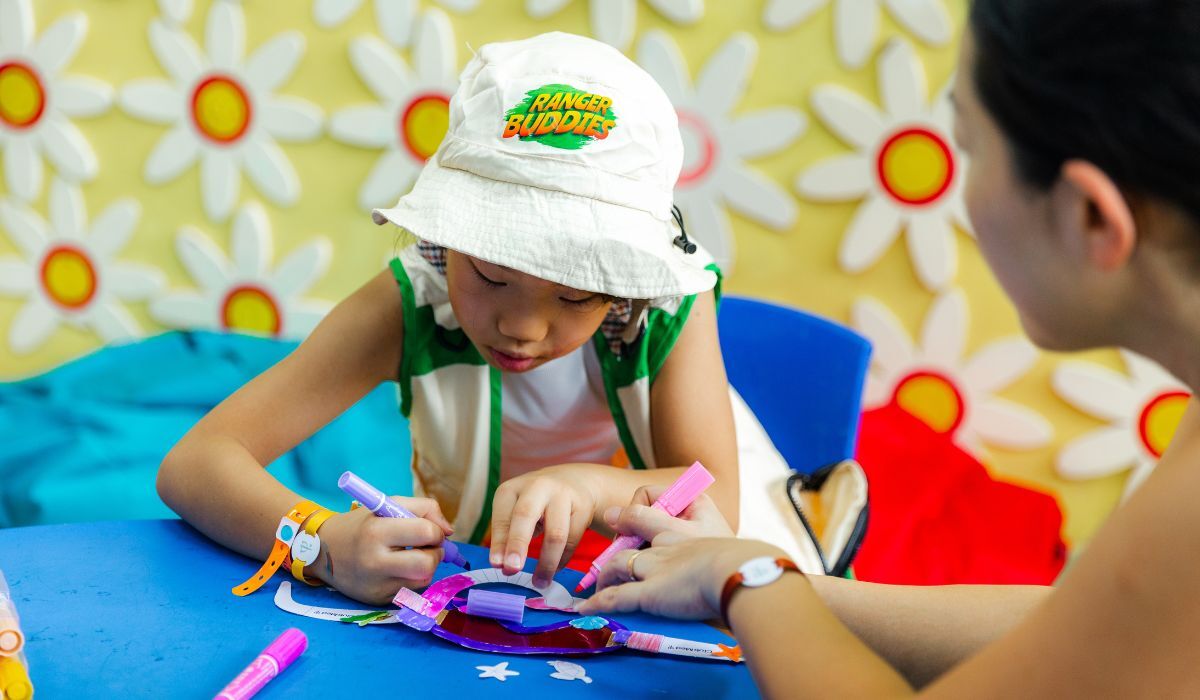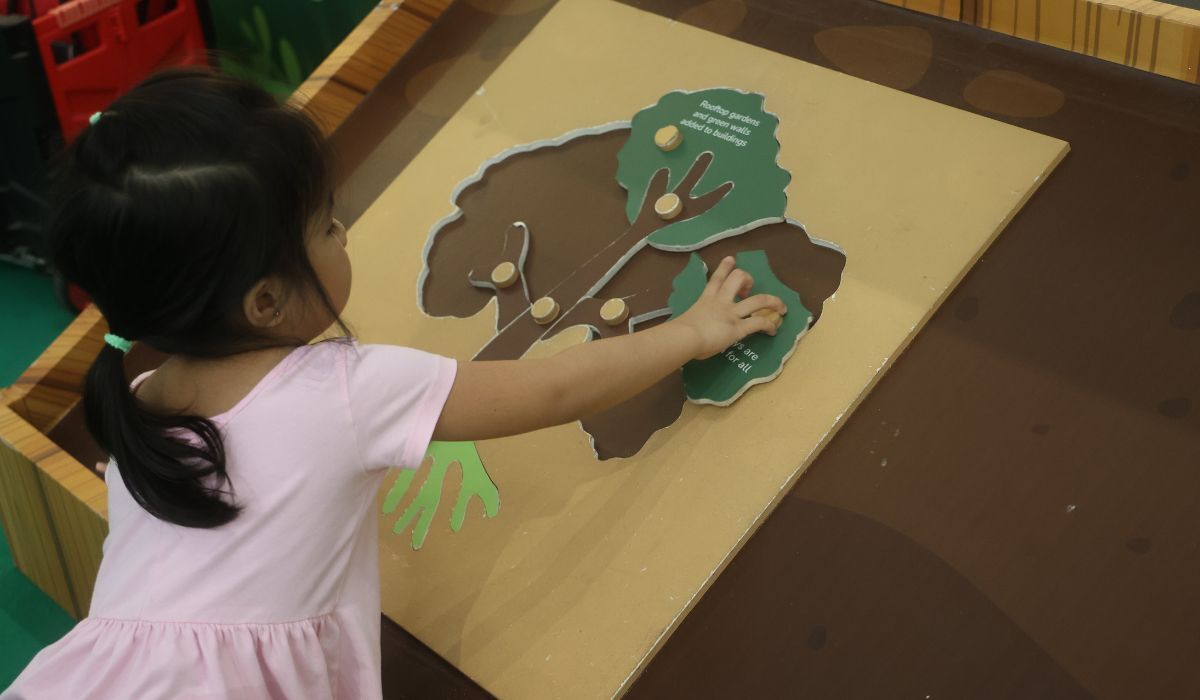Raising resilient kids: 7 tips to help your child tackle life's challenges
With resilience, children will be ready to tackle whatever life throws at them. But resilience is not developed overnight and needs constant practice, so as parents, how can we help our children build their mental strength?
Imagine your child comes home from school, shoulders slumped. “I failed my math test,” your child mutters. “I’ll never be good at this.” As a parent, it’s heartbreaking to see your children struggle with self-doubt. It’s natural to want to fix things for them, to offer comfort or even solutions. But what they really need is the tools to develop mental strength so they can handle setbacks, disappointments and challenges on their own.
Mental toughness isn’t about suppressing emotions or ignoring difficulties. It’s about resilience, perseverance, and the ability to adapt and grow through struggles.
Psychologist Angela Duckworth, in her groundbreaking book Grit: The Power of Passion and Perseverance, found that children who develop grit, a combination of perseverance and passion, are far more likely to succeed than those who simply rely on intelligence or talent[1]. Similarly, Dr. Carol Dweck’s work on growth mindset demonstrates that children who believe in the power of effort rather than seeing abilities as fixed are more resilient and perform better academically, socially and emotionally[2].
So, how can you, as a parent, help your child develop mental strength? Here are seven powerful strategies backed by research to build resilience, optimism and perseverance in your child’s daily life.
1. Encourage a “Try Again” Mindset
One of the biggest hurdles to resilience is a fixed mindset: the belief that intelligence, talent, or ability is innate and unchangeable. If a child believes, “I’m just bad at math” or “I’ll never be good at sports”, the child is less likely to push through difficulties. The key to mental strength is teaching kids that abilities can be developed through effort.
Psychologist Carol Dweck’s research on growth mindset found that children who see failure as a learning opportunity rather than a dead-end are more likely to persevere and succeed. When your child faces a setback, instead of responding with sympathy or letting them quit, try saying:
- “You haven’t mastered this yet, but what can we do differently next time?”
- “Every expert started as a beginner. What small step can we take to improve?”.
- “What did you learn from this attempt?”
Instead of merely praising outcomes, emphasise effort. For example, rather than saying, “You’re so smart!”, say, “I love how hard you worked on this problem!” Research shows that praising effort over intelligence encourages kids to take on challenges rather than avoid them for fear of failure.
By shifting the focus from results to effort, you help your child develop resilience, the foundation of mental strength.
2. Teach Them to Reframe Negative Thoughts
Children are often their own worst critics. When faced with difficulty, they may engage in negative self-talk, such as “I’m not good enough” or “I’ll never get this right.” Teaching them to challenge and reframe these thoughts is essential for developing emotional resilience.
Psychologist Martin Seligman, a pioneer in positive psychology, found that optimistic children are not only happier but also more successful and healthier[3]. His work on Learned Optimism suggests that reframing negative thoughts into constructive perspectives can increase resilience and motivation.
To help your child shift their perspective:
- If they say, “I can’t do this,” encourage them to say, “This is hard, but I can improve with practice.”
- If they say, “I always mess up,” guide them to say, “I made a mistake, but I can fix it and learn from it.”
- If they say, “Nobody likes me,” help them explore, “Maybe I had a tough moment today, but I have friends who care about me.”
It’s also important to model this behaviour yourself. If you spill coffee or forget something, instead of exclaiming “I’m so dumb!”, say aloud, “That was a mistake, but I’ll do better next time.” When kids see you reframing situations positively, they learn to do the same.
3. Develop Their Problem-solving Skills
 When children struggle, they often feel helpless and stuck. But teaching problem-solving skills equips them with confidence and self-sufficiency. Psychologist Lev Vygotsky’s Zone of Proximal Development theory suggests that children learn best when they are guided and supported through challenges until they develop the ability to tackle them independently.
When children struggle, they often feel helpless and stuck. But teaching problem-solving skills equips them with confidence and self-sufficiency. Psychologist Lev Vygotsky’s Zone of Proximal Development theory suggests that children learn best when they are guided and supported through challenges until they develop the ability to tackle them independently.
Encourage your child to approach challenges step by step:
- Break it down: “Let’s figure out the first small step.”
- Brainstorm solutions: “What are three different ways we could solve this problem?”
- Encourage trial and error: “If this solution doesn’t work, what else can we try?”
When kids are encouraged to solve problems on their own rather than always having solutions handed to them, they build confidence, resourcefulness and perseverance, all key components of mental strength.
4. Foster Independence and Responsibility
Children develop resilience by experiencing responsibility. When they are given age-appropriate tasks to take responsibility for, they build confidence in their ability to navigate life.
Give your child responsibilities that challenge them but are still manageable, such as:
- Packing their own school lunch
- Organising their backpack for school
- Managing a weekly allowance
Allow them to experience natural consequences. If they forget their homework, resist the urge to rush to school with it. Instead, help them reflect: “What can you do differently next time?” Responsible children develop greater self-regulation, resilience and adaptability.
5. Help Them Develop Emotional Regulation Skills
Resilience allows your child to manage their emotions effectively. Without emotional regulation, children may overreact to minor frustrations, struggle to handle criticism, or give up easily when things don’t go their way. Try the following techniques with them:
 Deep Breathing: Teach your child simple breathing techniques, like inhaling for four seconds, holding for four seconds, and exhaling for four seconds. This helps lower stress and regain control in emotional moments.
Deep Breathing: Teach your child simple breathing techniques, like inhaling for four seconds, holding for four seconds, and exhaling for four seconds. This helps lower stress and regain control in emotional moments.- Journalling: Encouraging kids to write down their feelings helps them process emotions constructively.
- “Name it to tame it” Strategy: Help children label their emotions — “I see you’re feeling frustrated. Do you want to talk about it?” so they learn to identify and express feelings rather than act out.
Children who learn to regulate their emotions perform better academically, have healthier relationships and experience lower stress levels.
6. Encourage Risk-Taking within Limits
Many children fear stepping outside their comfort zones. It could be speaking up in class that raises their fear, or trying a new sport, or making new friends. However, taking small, calculated risks is crucial for developing confidence and resilience. Foster healthy risk-taking in your child with the following activities:
- Start with small challenges: “Let’s try reading aloud today.”
- Praise courage, not just success: “I’m so proud of you for trying!”
- Normalise failure: “Mistakes help us learn and grow.”
Children who are overprotected may develop low self-confidence and avoid challenges. Encouraging children to try new things, even if they might fail, teaches them that failure isn’t something to be feared, but an opportunity for learning.
7. Build a Strong Support System
Resilient children typically have strong support networks. Positive relationships with parents, teachers and friends are critical for resilience. Build a strong support system for your child by doing the following:
- Foster open conversations at home: Let your children know they can talk to you about anything without judgment.
- Encourage healthy friendships: Help them find and maintain supportive peer relationships.
- Show empathy: When children struggle, validate their emotions: “I understand this is tough for you.”

Children who feel emotionally supported are more likely to bounce back from challenges, knowing they have a strong foundation to rely on.
Being mentally strong isn’t a character strength that is built overnight. It is developed through consistent practice. By implementing the strategies outlined in this article, you are giving your child the tools they need to face life’s challenges with grit, optimism, and perseverance.
REVIEWED BY DR JACQUELINE CHUNG
[1]Duckworth, A. L. (2016). Grit: The power of passion and perseverance. New York: Simon and Schuster.
[2]Dweck, C. S. (2006). Mindset: The new psychology of success. Random House.
[3]Seligman, M. E. P. (2006). Learned optimism: How to change your mind and your life. New York: Vintage Books.




